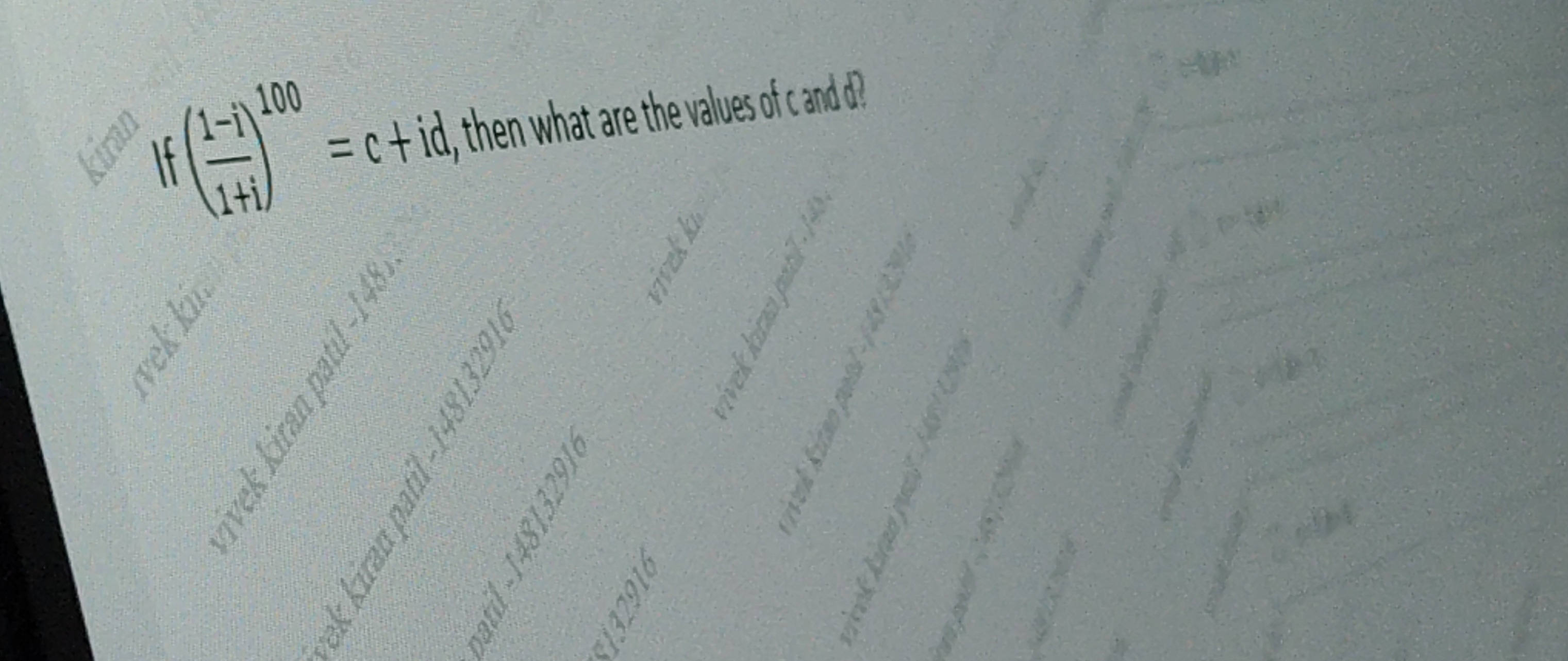Question
Question: If $\left(\frac{1-i}{1+i}\right)^{100} = c + id$, then what are the values of c and d?...
If (1+i1−i)100=c+id, then what are the values of c and d?

c=1, d=0
Solution
To find the values of c and d, we first need to simplify the expression (1+i1−i)100.
Step 1: Simplify the base of the expression. We will simplify the fraction 1+i1−i by multiplying the numerator and denominator by the conjugate of the denominator. The conjugate of 1+i is 1−i.
1+i1−i=1+i1−i×1−i1−i
Using the algebraic identity (a−b)2=a2−2ab+b2 for the numerator and (a+b)(a−b)=a2−b2 for the denominator:
=12−i2(1−i)2
Recall that i2=−1. Substitute this value:
=1−(−1)12−2(1)(i)+i2 =1+11−2i−1 =2−2i =−i
Step 2: Substitute the simplified base back into the original expression. Now the expression becomes:
(−i)100
Step 3: Evaluate the power of the complex number. We can write (−i)100 as:
(−i)100=(−1)100×(i)100
Since 100 is an even number, (−1)100=1. So, the expression simplifies to:
=1×i100 =i100
To evaluate i100, we use the cyclic property of powers of i: i1=i i2=−1 i3=−i i4=1
The powers of i repeat every 4 terms. To find i100, we divide the exponent 100 by 4: 100÷4=25 with a remainder of 0. When the remainder is 0, in=i4=1. Therefore, i100=1.
Step 4: Equate the result to c+id. We found that (1+i1−i)100=1. Given that (1+i1−i)100=c+id. So, we have:
c+id=1
We can write 1 in the form a+bi as 1+0i. Comparing the real and imaginary parts: c=1 d=0
The values of c and d are 1 and 0 respectively.
